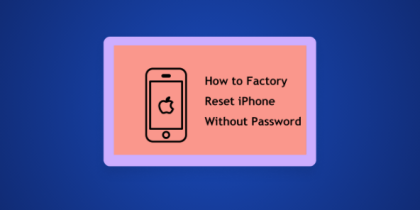A Virtual Private Network (VPN) provides privacy, security, and unrestricted access to the internet. While VPNs improve privacy and secure data information typically vary from place to place without notice and are dependent on many factors. Most users experience reduced speeds, dropped connections, or erratic performances and usually attribute these to the VPN itself.
Conversely, VPN speed and performance rely on hundreds of factors including server location, encryption level and even your computer’s hardware. PureVPN stands out to be the best, offering high-speed optimized servers in more than 70 countries with military-grade encryption and a secure infrastructure for better speed and stability.
Understanding VPN Performance
It should be understood what VPN performance is and why it plays a significant part in your entire online experience. At its core, VPN performance refers to the ability of your VPN service to transfer data between your devices and the VPN server whilst maintaining some level of speed, stability and security. It’s the stable, fast connection, with low latency and strong encryption, that ensures your online behavior stays private and seamless.
What Does VPN Performance Mean?
VPN performance means how efficiently your VPN manages speed, stability, latency and reliability during a connection. It tells you the efficiency and reliability of your VPN when it’s running on your device. Let’s see the breakdown of VPN performance:
Speed
The speed at which data is exchanged between your device and the VPN server. Higher the performance, minimal chances of drop in speed.
Latency
Time elapsed between sending and receiving packets of data which is important for real time activities such as gaming or video calling.
Stability
The consistency of the connection over time without drops or interruptions even during heavy data use.
Reliability
The ability of the VPN to function reliably across various servers and networks without frequent slowdowns.
Why VPN Performance Matters?
How well a VPN performs impacts how you experience the internet while doing anything. If the VPN is not performing well, it may cause buffering, lag, or video quality to deteriorate when streaming videos through Netflix and Youtube. For gaming, high latency causes the inability to play online games or makes them a frustrating experience.
For remote workers, maintaining a consistent VPN connection is a key component of an effective video conference or its equivalent for securely sending data or private communications. Even if a user is doing nothing more than simply browsing, a slower speed can create a waiting game for the pages to load or the session to disconnect.
What Factors Affect VPN Performance?

A variety of factors can affect a VPN’s performance, influencing speed, stability, and overall user experience. Knowing these factors will help you select the right VPN settings and the right VPN provider for the best performance.
Server Distance and Location
The more distant you select a VPN server from your location, the more data has to travel which results in higher latency and slower speed. To have the best performance, connect to a server which is close to your location or one which is optimised for the activity you are doing.
Server Load and Bandwidth
All VPNs have a maximum capacity. When too many users connect simultaneously, the bandwidth available per user drops which results in slower speeds.
Encryption Level
Encryption keeps your data secure but can also influence speed. AES-256 is a stronger encryption method that ensures first-class security but uses more processing power which can decrease speed slightly. Lighter encryption methods allow for faster data processing, but security suffers. The catch is balancing security and speed based on your needs.
VPN Protocol
A VPN protocol decides how data is transferred between your device and the server. Each protocol has its own strengths:
- WireGuard is the most latest, lightweight and extremely fast VPN protocol which is best for streaming & gaming.
- OpenVPN is highly secure and trustable but slightly slower due to heavy encryption.
- IKEv2/IPSec is great for mobile devices and network switching between Wi-Fi and cellular data.
If speed is your primary concern, switching to WireGuard can make a significant difference.
Base Internet Speed
A VPN cannot outdo the bandwidth provided by your Internet Service Provider (ISP). If your base internet is slow, your VPN will be too. Before checking VPN performance, perform a speed test without a VPN to establish your baseline.
Device Hardware and Processing Power
Encryption and decryption require CPU resources. Old computers or mobile devices with limited processing power may create problems to maintain speed, especially under heavy encryption.
Close background apps or change to a device with faster hardware to boost performance.
ISP Throttling and Network Congestion
Certain ISPs intentionally slow down traffic such as streaming or torrenting. A VPN can usually avoid throttling by hiding your activity, but if your overall network is congested, you can still expect to see slower speeds.
Server Infrastructure and Routing Optimization
Best VPN solutions invest in robust 10-20 Gbps servers and optimized network paths to minimize latency and packet loss. Good routing ensures your data is routed on the quickest available route over the internet, enhancing speed and authenticity.
Firewall, Antivirus, or Background Apps
Firewall, antivirus software, and resource-intensive background applications can cause VPN connections to fail or slow down. Occasionally, the issue is not the VPN but rather the interface from your local systems. To enhance performance, whitelist your VPN in these programs and shut down unnecessary background processes.
Simultaneous Connections
Most VPNs support multiple devices at the same time. Yet, connecting too many devices simultaneously can split available bandwidth and lower performance. To keep speeds faster, attempt to limit the number of connections which are active at the same time.
VPN App Configuration
Advanced VPN features can also affect speed and performance overall. Split Tunneling can help your performance since it is possible to set the VPN to use for specific apps or websites and prevent any unnecessary overhead of the VPN for data transfer. Double VPN will take a little longer than a single-server connection since it encrypts your traffic twice, however, it provides extra native security. A Kill Switch ultimately does not interfere with performance intentionally, or directly. A Kill Switch will protect your data if the VPN connection terminates unexpectedly.
Connection Type (Wi-Fi vs Ethernet)
Wireless connections are more vulnerable to interface from other devices and networks, which means lower speeds and increased latency. A wired Ethernet connection tends to be faster and more stable which is well suited to streaming, gaming, or video conferencing.
How Can You Improve VPN Performance?
Even the best VPNs slow down from time to time, but fortunately, there are some methods to improve VPN speed and max out performance. Simple things such as choosing the right server, keeping your software updated, and tweaking the connection settings can make your VPN faster, more stable, and more reliable for everyday usage. Let’s explore further:
- Select a VPN server near you or one with less traffic to reduce latency and enhance connection speed.
- Change to new protocols such as WireGuard or IKEv2 for quicker, more efficient and secure connections.
- An ethernet connection offers you excellent stability and speed as opposed to Wi-Fi, which is susceptible to interface.
- Shut down unwanted applications or downloads to release bandwidth and enhance VPN speed.
- Keep your VPN application and operating system up to date in order to enjoy performance enhancements and bug fixations.
- Additional encryption provides security but decreases your VPN speed so use it if absolutely necessary.
- Restarting eliminates all temporary issues and instantly reverts your VPN’s performance
Why Some VPNs Perform Better Than Others?
All VPNs do not have the same performance quality, the variation usually comes with the level of their infrastructure, routing optimization, and bandwidth management. High-end VPN service providers spend more on high speed servers (usually up to 20 Gbps), intelligent routing technologies that improve latencies, and new protocols such as WireGuard to optimize speed and reliability. They also have enormous global server networks to distribute traffic effectively and avoid bottlenecks.
PureVPN is unique with its 6,000+ global servers, 20 Gbps speed optimized infrastructure, and WireGuard support, guaranteeing users a consistently fast, stable and smooth VPN experience. It offers automatically optimized protocol and smart server selection, ensuring the best performance for any activity. PureVPN provides unmatched reliability with no compromise on security for streaming, gaming, or remote work.
Conclusion
VPN performance is influenced by many things ranging from server distance and protocol selection to encryption level and hardware of your device. Knowing these variables makes it easy for you to make excellent decisions and improve your connection quality.
When you select PureVPN and tailor it using its advanced settings, combined with a reliable underlying internet connection, you’ll be able to find a perfect balance of speed, stability, and security. The high-speed servers with smart optimization mean PureVPN doesn’t slow you down; you can browse the internet, stream content or work – all while maintaining privacy, confidence, and peace of mind.








